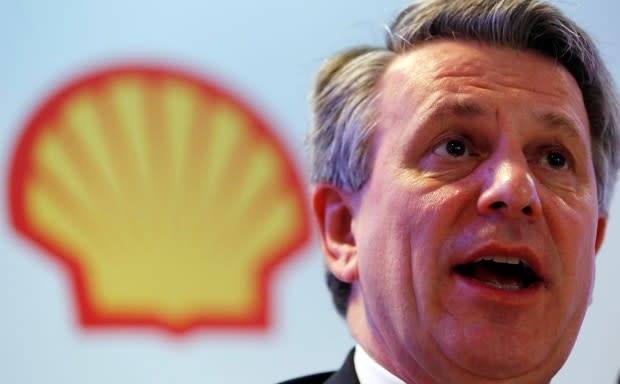Canadian companies may double down on oilsands after Total writes off $9.3B in assets: analysts
Earlier this week, French energy giant Total announced it would write off $9.3-billion worth of oilsands assets in Alberta and cancel its oil lobby membership in the Calgary-based Canadian Association of Petroleum Producers.
Writedowns would include $7.3-billion related to its ownership in the Fort Hills oilsands mine in northern Alberta, and a 50 per cent stake in the ConocoPhillips-operated Surmont thermal oilsands project.
The moves reflect the Paris-based company's dissatisfaction with the performance of its assets over the last number of years, said Richard Masson, chair of the World Petroleum Council.
"I think about the Fort Hill project in particular … Total has been very unhappy with that asset's performance, [among others]," Masson said, citing capital cost overruns and curtailed oil production.
"So I think, as an international major, they look at the world and they say, 'What things are we going to do to try and align with climate change?'
"The asset they had that wasn't giving them good performance is the one they were prepared to take a big hit to."
'Stranded' oil reserves
On Wednesday, Total said it was leaving the Canadian oil lobby because of a "misalignment" between the company's climate ambition statement and CAPP's public positions, adding that it considered oil reserves with high production costs to be produced more than 20 years in the future to be "stranded."
While Masson said he didn't feel that would be a dominant theme in the Canadian oilsands moving forward, Total didn't represent the first example of an international company shifting focus away from those assets.
In 2017, Royal Dutch Shell struck a $12.74-billion deal with Canadian Natural Resources, stating at the time that the company did not have the scale or capability to remain in the oilsands long-term.
"What's happening, in my mind, in [both] of those instances, both of those companies are international majors with big retail presences. Shell has gas stations around the world, as does Total," Masson said.
"They do not want to see boycotts, they do not want to see anything that affects their brand in a negative way."

Kevin Birn, a Calgary-based analyst with IHS Markit, said the oilsands emerged, in part, from a world in which oil was in short supply. Today, he said, the market has changed.
"Companies like Total that are big and integrated will shift their priorities from one resource to another, where they think they have a competitive advantage," Birn said.
"So you see a number of companies moving their portfolios away from the oilsands, but you also see Canadian companies doubling down on those assets because they feel they have a competitive advantage."
With the Fort Hill project now a lower value on Total's books, Masson said he expected that someone would soon try to make a deal to buy those assets.
"It's easier for Total to say, okay, we're going to take, I don't know, 50 or 60 cents on the dollar for what we've paid for these things now that they've been written down so far," he said.
"It may be that we see these assets change hands, probably to a Canadian company. And overall, that could be a good thing for Canada."
Earlier this week, IHS Markit released its latest forecast for oilsands production growth, continuing a decade-long trend of industry experts projecting a less optimistic outlook for the sector.

